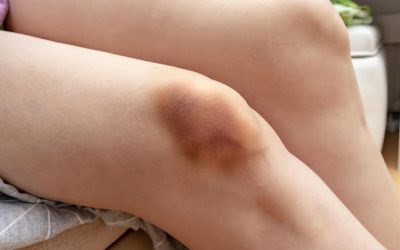When these two disorders co-occur, their effects can amplify each other, leading to more severe emotional, behavioral, and interpersonal challenges. Here’s what you need to know about NPD and alcohol use disorder, including how they intersect and how to treat them. One startling statistic reveals that 70% of individuals with narcissistic personality disorder also struggle with substance abuse. While narcissism is a personality disorder and alcoholism is an addiction, narcissists and drug addiction treatment alcoholics share several characteristics. Many people struggling with substance misuse have co-occurring mental health disorders.

Specialized Treatment:

Researchers agree that there is a connection between narcissism and many different types of addiction. When it comes to substance abuse, some addictions have similar traits to narcissism, which require treatment programs. You may be surprised to learn that narcissism and addiction often go hand-in-hand. Research has shown evidence that people with narcissism have an increased risk of addiction. Narcissists are commonly found to be addicted to using drugs, alcohol, sex, and even social media. Hi, I’m Emily Thompson, a psychologist with years of experience, and the voice what is alcoholism behind narcissisticmind.com.
Can Alcohol Make Someone Narcissistic?
They may engage in numerous sexual encounters without forming deep emotional connections. This constant pursuit might stem from their fragile self-esteem, driving them to seek external affirmation through sexual conquests. For example, a covert narcissist may seduce multiple partners yet feel empty and unfulfilled afterward, reinforcing their cycle of addiction. Covert narcissism refers to a personality type characterized by a hidden sense of superiority. Unlike overt narcissists, covert narcissists project humility, often feeling fragile despite their inflated self-image. They may act sensitive or withdrawn, using these traits to manipulate others into providing attention and admiration.
Spotting an Alcoholic Narcissist
- NPD increases the risk of alcohol misuse as a means to escape difficult emotions.
- People with an alcoholic personality show a disregard for others.
- At Recovery Guide, our mission is to connect as many individuals struggling with mental health and substance abuse disorders to reputable treatment facilities.
- While navigating the terrain of living with an alcoholic narcissist, it’s essential to adopt strategies that protect your emotional well-being.
- It should be noted that narcissism is a trait, but can also be part of a personality disorder.
Integrated treatment approaches recognize the interplay between these disorders and provide comprehensive care. This approach is essential when dealing with the co-occurrence of alcoholism and narcissistic tendencies. This type of setting is particularly beneficial for those with severe addiction and co-occurring mental health issues, ensuring they receive the necessary care to address both conditions. When two conditions like narcissism and alcoholism occur together, sometimes people believe that one disorder causes the other, but co-occurring disorders are more complex than that. Research has shown that there is an overlap between alcohol use disorder and personality disorders, including NPD.
Breaking Free: The Journey to Recovery

Understanding these symptoms is crucial in recognizing and addressing the complex nature of alcoholic narcissism. They may be prone to outbursts of anger and have difficulty controlling their emotions. Narcissism is a personality feature that can be part of narcissistic personality disorder (NPD) in some people, and alcoholism is a substance use disorder (SUD). Narcissists can become alcoholics, and alcoholics can be especially narcissistic when they drink. If you suspect that someone you know has narcissistic personality disorder and alcoholism, you may be wondering how to deal with a drunk narcissist, or how do narcissists act when they’re drunk.
Remember that setting boundaries is not selfish but necessary for mental health and well-being. Medical supervision is crucial during alcohol detoxification to ensure safety and manage potentially severe withdrawal symptoms. Medications may be prescribed to manage alcohol cravings and withdrawal symptoms. Treatment may involve detoxification, counseling, and support groups to address both physical and psychological aspects of addiction.
A malignant narcissist may lie frequently, exhibit aggressiveness, have psychopathic traits, manipulate people, and even enjoy inflicting pain on others. Learning about the symptoms of each mental health disorder is important to understand how NPD and AUD intersect. One study investigated alcohol and narcissism in college students. The researchers found that grandiose narcissism, i.e., overt narcissism, was a positive predictor of alcohol consumption. People in this group were also less likely to see their alcohol use covert narcissism and alcoholism as a problem.
- Her passion for psychology and personal development shines through in every piece she writes.
- As per Greek mythology, Narcissus was a handsome young man who fell in love with his own reflection in the river and wasted away by himself, never having been able to reach this unattainable image.
- Though they present narcissistic traits differently, both covert and overt narcissists tend to meet the criteria for NPD outlined by the DSM.
- NPD and AUD frequently co-exist and can increase the effects of each other.
Where to Find a Support System
People with this type are much more sensitive, and narcissistic behavior helps protect them from feelings of being inadequate. Although they go between feeling superior and inferior to others, they feel offended or anxious when other people don’t treat them as if they’re special. Providing resources and guidance to those affected helps them maintain their own mental health and well-being while supporting their loved ones on the path to recovery. Recognizing a high functioning alcoholic requires looking beyond their outward appearance. While they may seem to have their life together, certain signs and behaviors can indicate their struggle with alcoholism. Fueled by a belief that others don’t deserve their wealth, power or status, covert narcissists may isolate themselves from others, fostering their inner sense of superiority.
Taken together, there is robust evidence for associations of substance use and addiction with psychopathic traits not only in forensic samples but also in the general population. Unlike narcissism, there is little evidence for drug use as affect regulation in psychopathy. This aligns with the idea that individuals with psychopathic traits experience low levels of stress and anxiety, as for instance manifest in the negative correlations with neuroticism (64, 66). Substance use and addiction might be more related to stimulation seeking and impulsivity.
In this article, we’ll explore the connection between covert narcissism and sex addiction. You’ll gain insights into the signs to watch for and how these traits can impact your relationships. Understanding this dynamic can empower you to navigate your interactions more effectively and protect your emotional well-being.

